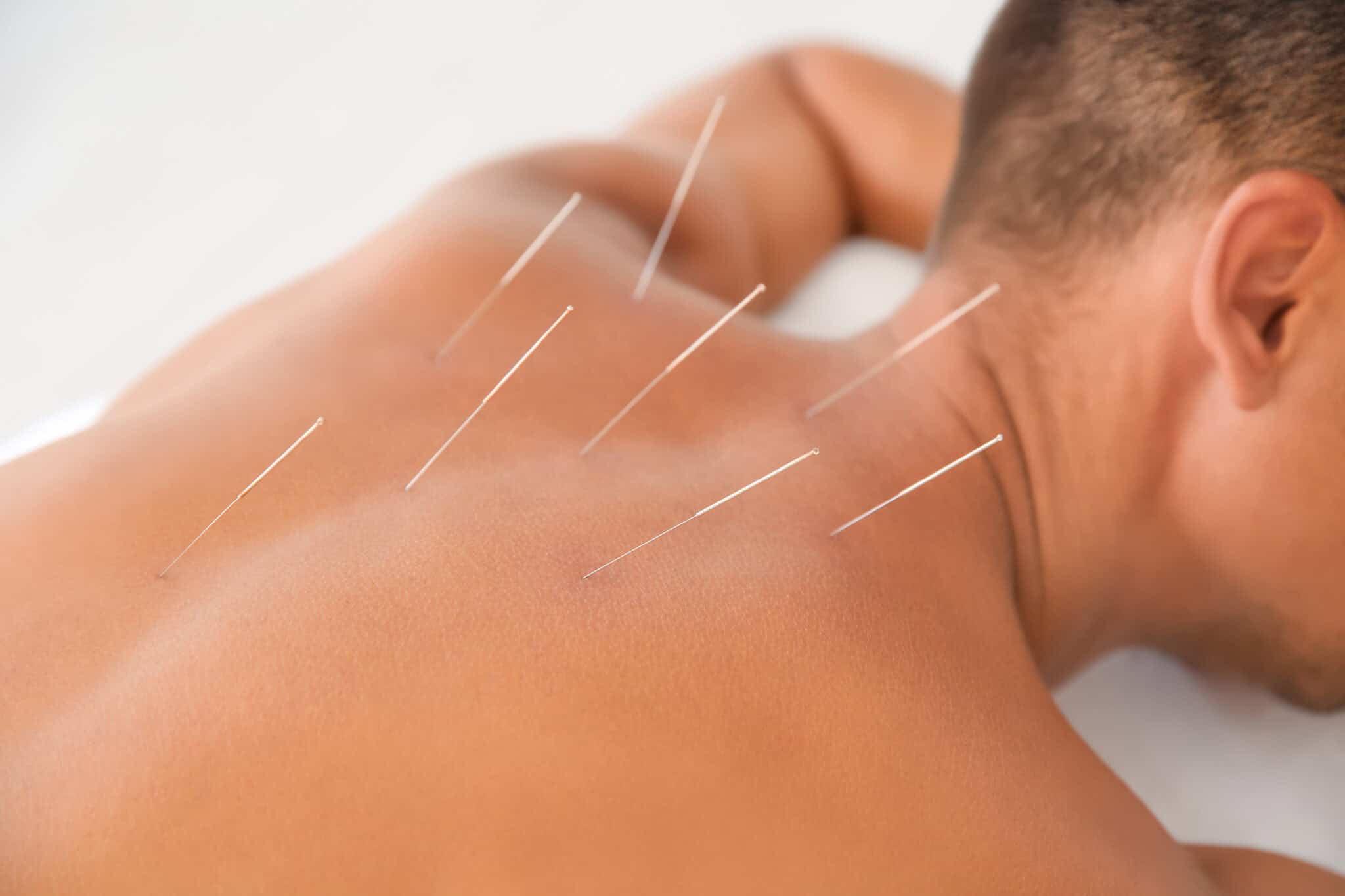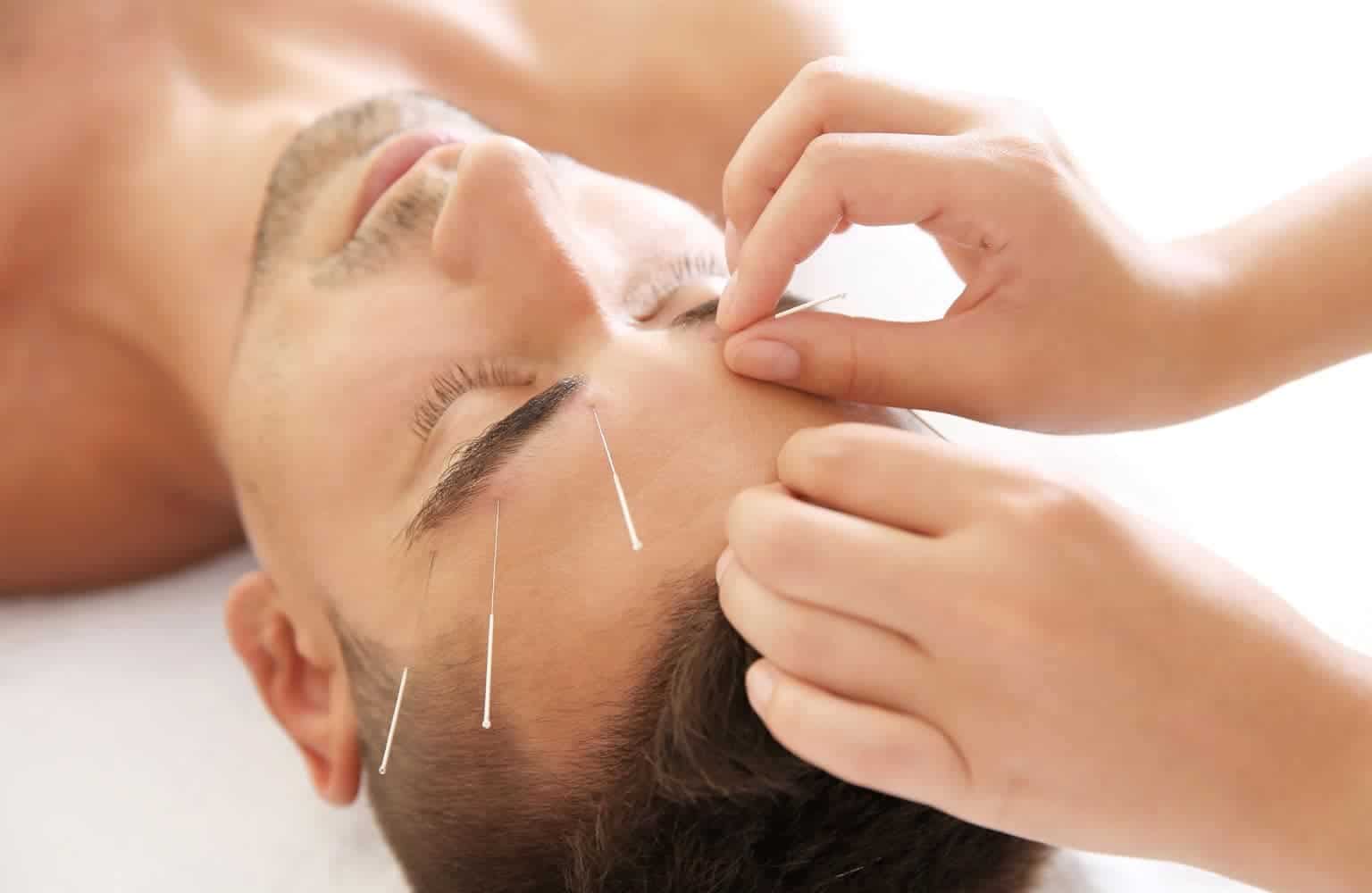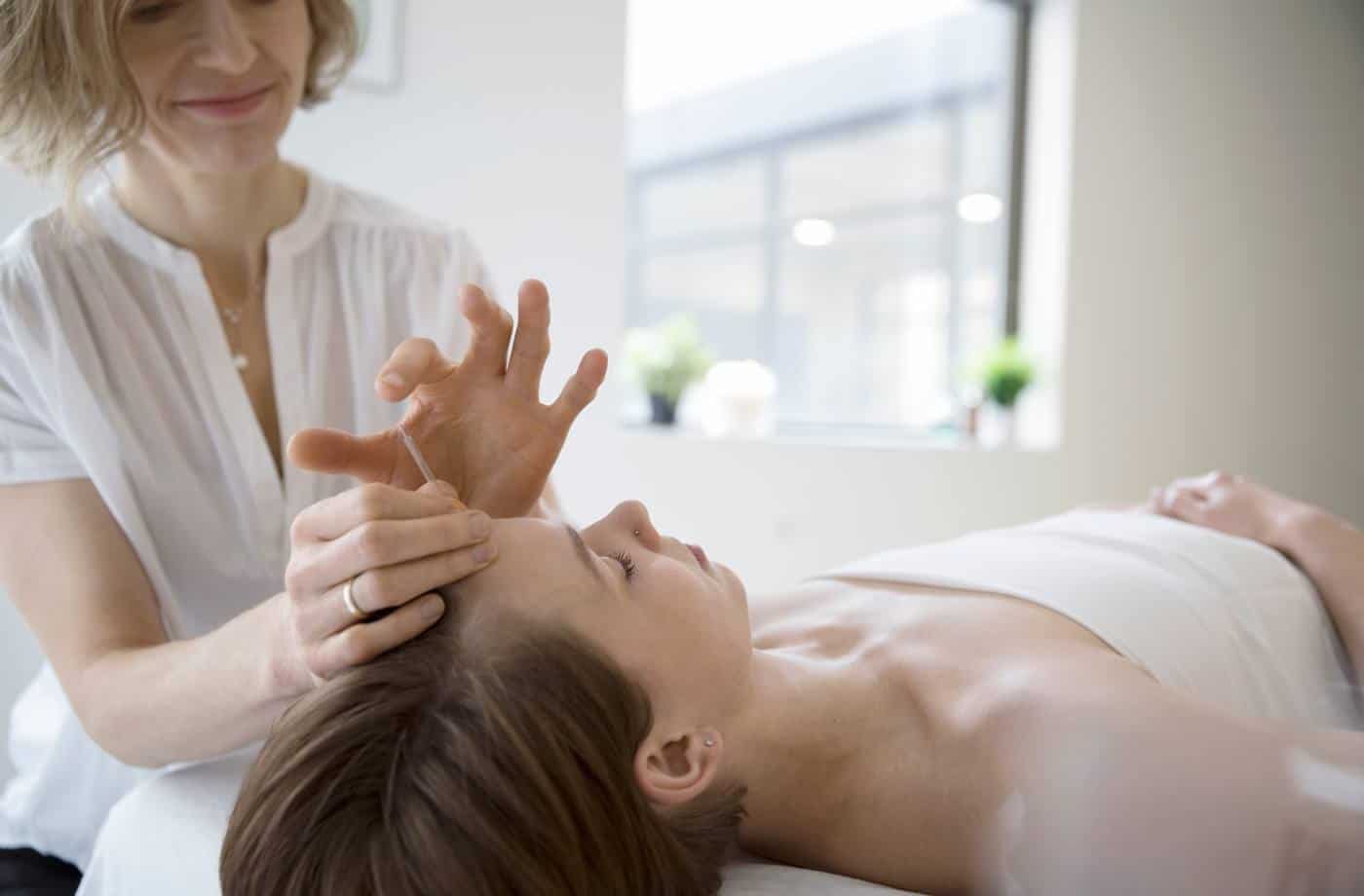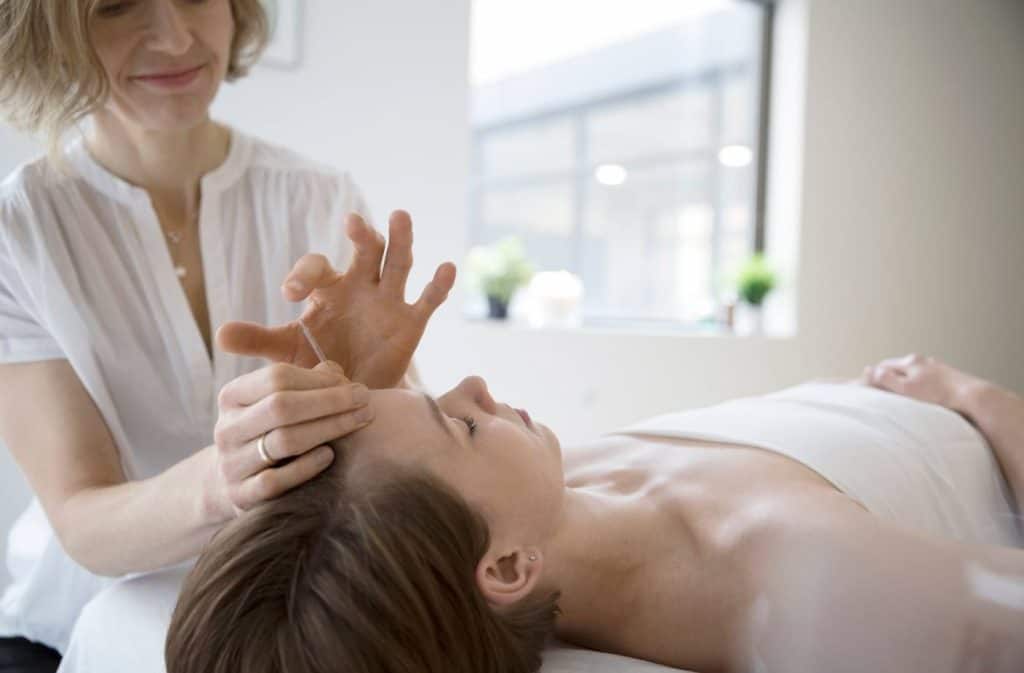The Calming Effect of Acupuncture on Stress
Stress has become a ubiquitous syndrome in our modern lifestyle, often diminishing our quality of life. Acupuncture, an ancient practice, offers a calming respite from the daily grind. Numerous studies, as cited in reputable medical journals, have shown its effectiveness in reducing stress levels and promoting overall well-being. In this article, we’ll explore the science behind acupuncture‘s stress-relieving properties, share personal stories of transformation, and guide you through preparing for your first session. Keep reading to discover how this time-tested therapy might be the key to unlocking a more balanced, stress-free life – and why you might want to book an appointment soon.
Key Takeaways
- Acupuncture is an ancient Chinese practice that may help alleviate stress and promote relaxation
- The therapy works by stimulating specific body points to release endorphins and modulate stress pathways
- Scientific research continues to explore acupuncture‘s efficacy in managing various stress-related health conditions
- Patients at Gard Wellness Center have reported significant stress reduction through acupuncture treatments
- Proper preparation and communication with practitioners can maximize the benefits of acupuncture sessions
Understanding the Science Behind Acupuncture and Stress

Acupuncture, an ancient practice recognized by the National Certification Commission for Acupuncture and Oriental Medicine, has gained attention for its potential to alleviate stress. This traditional Chinese therapy, now embraced by the National Health Service and studied by the National Center for Complementary and Integrative Health, offers a unique approach to managing stress-related conditions, including chronic fatigue syndrome. By understanding the scientific mechanisms behind acupuncture’s effects on the body’s stress pathways, we can better appreciate its role as a complementary treatment alongside conventional methods like exercise. This exploration will delve into the fundamentals of acupuncture therapy and its intricate interactions with the body’s stress response systems. If interested, you can book an appointment for acupuncture sessions.
Exploring the Basics of Acupuncture Therapy
Acupuncture therapy, rooted in the ancient Chinese concept of yin and yang, involves the insertion of fine needles into specific points on the body. This practice stimulates the release of endorphins, the body’s natural pain-relieving chemicals, which can help alleviate stress and promote relaxation. While some view acupuncture as a form of alternative medicine, research continues to explore its efficacy in managing various health conditions, including stress-related disorders. Scientists conduct experiments to better understand the mechanisms behind acupuncture‘s effects, moving beyond traditional advertising claims to establish a scientific basis for its therapeutic potential.
| Aspect | Description |
|---|---|
| Origin | Ancient Chinese medicine |
| Method | Insertion of fine needles into specific body points |
| Mechanism | Stimulation of endorphin release |
| Benefits | Stress relief and relaxation |
| Research Focus | Scientific validation of efficacy |
How Acupuncture Interacts With Stress Pathways in the Body
Acupuncture interacts with the body’s stress pathways by stimulating specific points that influence the nervous system. This ancient practice targets areas associated with stress reduction, potentially addressing issues like infertility and tendinopathy. Research suggests that acupuncture may modulate the hypothalamic-pituitary-adrenal (HPA) axis, a key player in the stress response. By inserting needles at precise locations, acupuncturists aim to restore balance and alleviate stress-related symptoms, which may even manifest on the tongue. While some insurance plans now cover acupuncture treatments, patients should verify coverage before seeking this complementary therapy.
| Stress Pathway | Acupuncture’s Influence |
|---|---|
| Nervous System | Stimulation of specific points |
| HPA Axis | Potential modulation |
| Stress Symptoms | Targeted relief |
| Body Balance | Restoration attempts |
Five Ways Acupuncture Helps Reduce Stress Levels

Acupuncture offers multiple pathways to stress reduction, addressing both physical and mental aspects of well-being. This ancient practice, now recognized in fields such as allergy management and oncology, employs precise needle stimulation to activate the body’s natural stress-relief mechanisms. By targeting specific points, acupuncture can enhance relaxation, reduce anxiety, and regulate stress hormones, promoting a more balanced state of health. While not a replacement for primary care, many patients find acupuncture to be a valuable complement to their overall wellness strategy, often in consultation with their primary care physician. Let’s explore two key ways acupuncture contributes to stress reduction.
Enhancing Relaxation and Reducing Anxiety Through Needle Placement
Acupuncture practitioners strategically place needles to enhance relaxation and reduce anxiety, targeting specific points that influence the body’s stress response. This alternative medicine approach focuses on understanding the patient‘s unique needs, often incorporating information from patient portals to tailor treatments. While not a replacement for diagnostic tools like magnetic resonance imaging, acupuncture offers a complementary method for managing stress-related symptoms and promoting overall well-being, even in cases of injury.
| Acupuncture Point | Stress-Related Benefit |
|---|---|
| LI-4 (Large Intestine 4) | Reduces anxiety and tension |
| HT-7 (Heart 7) | Calms the mind and improves sleep |
| PC-6 (Pericardium 6) | Alleviates nausea and promotes relaxation |
| Yintang (Third Eye Point) | Relieves stress and enhances focus |
Regulating Stress Hormones for Balanced Well-Being
Acupuncture plays a significant role in regulating stress hormones, promoting balanced well-being for individuals, including breast cancer survivors. This ancient practice, along with modern techniques like dry needling, can help manage stress-related conditions such as rhinitis and obesity. By targeting specific points, acupuncture may modulate the body’s stress response, potentially reducing the risk of adverse events associated with chronic stress.
Personal Stories of Transformation With Acupuncture Therapy

At the Gard Wellness Center in Cary, NC, patients have experienced remarkable transformations through acupuncture therapy. These personal stories reveal how this ancient practice has helped individuals manage stress, even in cases of complex conditions like rheumatoid arthritis or stroke recovery. From initial skepticism to profound belief, patients have found relief in the clinic‘s serene environment. Acupuncturists carefully monitor each patient‘s pulse, adjusting treatments to optimize results. While not a replacement for anesthesia or conventional medicine, many have discovered acupuncture‘s complementary benefits in reducing stress and promoting overall well-being.
Case Studies Highlighting the Effectiveness of Acupuncture on Stress
Case studies at Gard Wellness Center have demonstrated the effectiveness of acupuncture in managing stress-related conditions, including back pain and carpal tunnel syndrome. Patients reported significant reductions in stress levels and improvements in overall well-being, with some experiencing unexpected benefits such as weight loss. These findings align with current biological understanding of acupuncture‘s impact on the body’s stress response systems, providing valuable insights for stress management approaches in healthcare.
From Skepticism to Belief – Personal Journeys Uncovered
At Gard Wellness Center, countless patients have transitioned from skepticism to belief in acupuncture‘s stress-reducing effects. Scientific evidence, including randomized controlled trials published on PubMed, has bolstered confidence in this ancient practice. Patients with conditions ranging from premenstrual syndrome to inflammatory bowel disease have reported significant improvements in their stress levels after undergoing acupuncture therapy, often surprising themselves with the positive outcomes.
Preparing for Your First Acupuncture Session

Embarking on your first acupuncture session at Gard Wellness Center can be both exciting and nerve-wracking. Understanding what to expect during your initial consultation and how to maximize the benefits of your treatment can help alleviate any concerns. While acupuncture is generally safe, it’s crucial to discuss any potential contraindications with your practitioner, especially if you’re undergoing radiation therapy or have specific health conditions. The scientific method has validated many aspects of acupuncture, with respected institutions like the Mayo Clinic recognizing its potential benefits. Before scheduling, check with your health insurance provider, as many now cover acupuncture treatments. By preparing adequately, you can ensure a smooth and effective first session, setting the foundation for stress reduction and overall well-being.
What to Expect During Your Initial Consultation
During your initial acupuncture consultation at Gard Wellness Center, expect a comprehensive assessment of your stress levels and overall health. The practitioner will inquire about your medical history, including any experiences with addiction or mental health concerns, and discuss how stress manifests in your life, such as through fatigue. This thorough evaluation, reminiscent of the rigorous health screenings implemented during Richard Nixon‘s presidency, ensures a tailored treatment plan. While acupuncture originated in China, its practice has spread globally, with France being one of many countries embracing this ancient technique for stress management:
| Consultation Step | Purpose |
|---|---|
| Medical History Review | Identify relevant health factors |
| Stress Assessment | Determine stress manifestations |
| Lifestyle Discussion | Understand daily stressors |
| Treatment Plan Creation | Develop personalized approach |
Tips for Maximizing the Benefits of Your Treatment
To maximize the benefits of your acupuncture treatment, maintain open communication with your practitioner about any changes in your stress levels or overall health. While acupuncture is not a substitute for medical diagnosis, it can complement traditional treatments for stress-related issues, including those associated with menopause. Stay hydrated before and after sessions, as proper hydration supports the body’s metabolism and enhances the effectiveness of acupuncture. Avoid consuming caffeine or taking dietary supplements immediately before treatment, as these may interfere with the body’s response to the carefully placed steel needles.
Conclusion
Acupuncture offers a powerful, scientifically-supported approach to managing stress by stimulating the body’s natural relaxation responses. This ancient practice interacts with key stress pathways, including the nervous system and HPA axis, to reduce anxiety and regulate stress hormones. Personal stories and case studies from Gard Wellness Center demonstrate the transformative effects of acupuncture on stress-related conditions, even for initially skeptical patients. By preparing properly for acupuncture sessions and following practitioner guidance, individuals can maximize the stress-reducing benefits of this complementary therapy, potentially improving their overall well-being and quality of life.
Curious about how acupuncture can help manage your stress? We’re here to answer your questions and provide more information. Feel free to reach out to Gard Wellness at (919) 322-4383 or visit our website to learn more about our acupuncture services. Your journey to stress relief and better well-being could start with a simple conversation.

